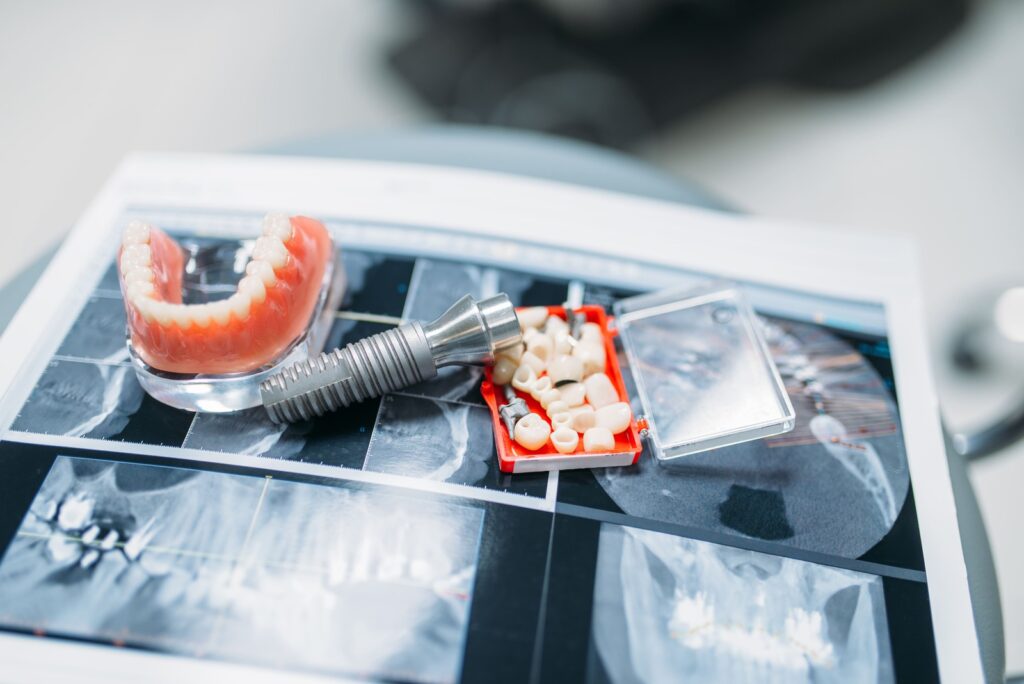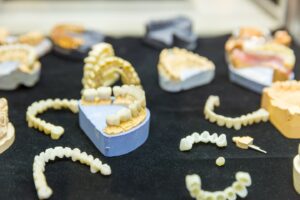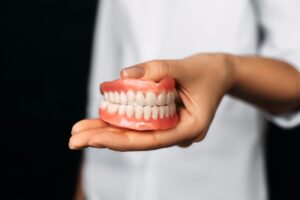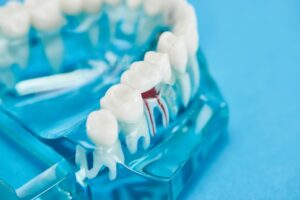Caring for your partials and dentures is essential for maintaining good oral hygiene and a healthy smile. Whether you have recently gotten partials or dentures or have been wearing them for a while, it is important to follow proper care practices to ensure their longevity and your overall oral health.
So, you might ask, how to Care for Your Partials and Dentures? In this article, we will guide you through the dos and don’ts of caring for your partials and dentures, provide expert tips for daily care, explain the importance of proper denture care, and give you a step-by-step guide on how to clean and maintain your partials and dentures. We will also answer some common questions, provide advice from dentists, recommend products for denture care, and share techniques to extend the lifespan of your partials and dentures.
Dos and Don’ts of Partials and Dentures Care
It is important to be aware of the dos and don’ts when it comes to caring for your partials and dentures. By following these guidelines, you can ensure that you are providing the best care for your oral prosthetics:
- Do remove your partials and dentures before going to bed to give your gums and jaw a rest.
- Don’t use toothpaste or regular mouthwash to clean your partials and dentures, as they can be abrasive and damage the material.
- Do handle your partials and dentures with care to avoid dropping them or causing any damage.
- Don’t use hot water to clean or soak your partials and dentures, as it can warp their shape.
- Do clean your partials and dentures after each meal to remove any food debris and bacteria.
- Don’t use bleach or harsh chemicals for cleaning, as they can weaken the structure of your partials and dentures.
- Do schedule regular dental check-ups to ensure your partials and dentures fit properly and are in good condition.
- Don’t attempt to adjust or repair your partials and dentures at home; consult your dentist for professional assistance.
Expert Tips for Daily Care
Proper daily care is crucial for maintaining the hygiene and longevity of your partials and dentures. Here are some expert tips to follow:
Cleaning Your Partials and Dentures
To clean your partials and dentures effectively, follow these steps:
- Remove any food debris by rinsing your partials and dentures under running water. Be careful not to drop them.
- Use a soft-bristled toothbrush specifically designed for cleaning dentures. Apply a non-abrasive denture cleaner or mild dish soap to the brush.
- Gently brush all surfaces of your partials and dentures, including the teeth and any attachments. Avoid applying excessive pressure.
- Rinse your partials and dentures thoroughly to remove any residue from the cleaning solution or soap.
- Soak your partials and dentures in a denture cleanser for the recommended duration. Follow the instructions provided by the manufacturer.
- Rinse your partials and dentures again before wearing them to remove any remaining traces of the denture cleanser.
Storing Your Partials and Dentures
Proper storage is crucial to prevent damage to your partials and dentures. Follow these guidelines:
- When not wearing your partials and dentures, store them in a clean container filled with water or a denture cleaning solution.
- Avoid using hot water for storage, as it can distort the shape of your partials and dentures.
- Keep your partials and dentures away from young children and pets, as they may mistake them for toys or chew on them, causing damage.
The Importance of Proper Denture Care
Proper care is vital for your partials and dentures. Here’s why:
- Maintaining oral hygiene: Regular cleaning of your partials and dentures helps remove plaque, bacteria, and food particles, preventing bad breath and gum disease.
- Prolonging their lifespan: By following proper care practices, you can extend the life of your partials and dentures, saving you from frequent replacements.
- Preventing discomfort and irritation: Neglecting proper care can lead to irritation, sores, and infections in your mouth and gum tissues.
- Preserving your smile’s aesthetics: Clean and well-maintained partials and dentures ensure a natural-looking smile, boosting your confidence.
Step-by-Step Guide: Cleaning and Maintaining Your Partials and Dentures
Follow this step-by-step process to effectively clean and maintain your partials and dentures at home:
- Gather all necessary supplies, including a soft-bristled denture brush, non-abrasive denture cleaner, mild dish soap, and a clean container for storage.
- Remove your partials and dentures and rinse them under running water to eliminate any food debris.
- Apply a small amount of non-abrasive denture cleaner or mild dish soap to a soft-bristled toothbrush specifically designed for dentures.
- Gently brush all surfaces of your partials and dentures, including the teeth and any attachments. Avoid using excessive force to prevent damage.
- Rinse your partials and dentures thoroughly to remove any traces of the cleaning solution or soap.
- Fill a clean container with water or a denture cleaning solution recommended by your dentist or the manufacturer.
- Place your partials and dentures in the container and let them soak for the recommended duration. Follow the instructions provided with the denture cleaner.
- After soaking, rinse your partials and dentures again to remove any remaining cleaning solution or residue.
- Inspect your partials and dentures for any visible signs of damage, such as cracks or loose attachments. If you notice any issues, contact your dentist for assistance.
- Store your partials and dentures in a clean container filled with water or a denture cleaning solution when not wearing them to prevent drying out or warping.
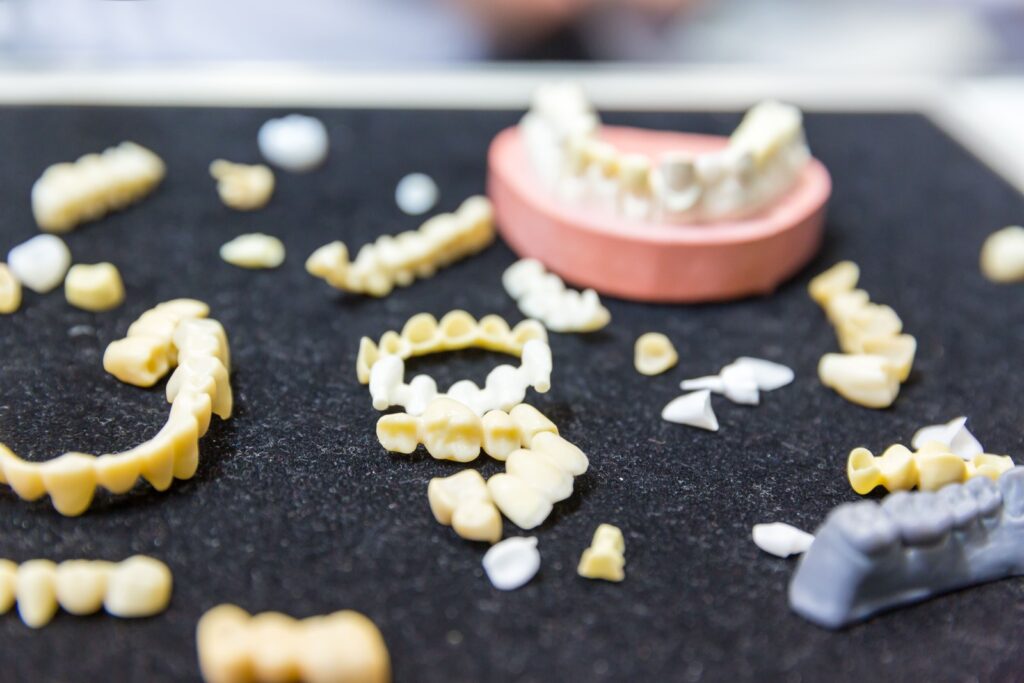
Common Questions Answered
Here are answers to some frequently asked questions about caring for your partials and dentures:
Can I use regular toothpaste to clean my partials and dentures?
No, regular toothpaste can be abrasive and damage the material of your partials and dentures. It’s best to use a non-abrasive denture cleaner or mild dish soap specifically designed for dentures.
How often should I clean my partials and dentures?
It’s recommended to clean your partials and dentures after each meal to remove any food debris and bacteria. Regular cleaning helps maintain oral hygiene and prevents complications.
Can I use bleach or harsh chemicals to clean my partials and dentures?
No, bleach and harsh chemicals can weaken the structure of your partials and dentures. Stick to non-abrasive denture cleaners recommended by your dentist or the manufacturer.
Advice from Dentists: Dos and Don’ts of Partials and Dentures Care
Dental professionals provide valuable insights into caring for your partials and dentures. Here’s their expert advice:
- Do schedule regular dental check-ups to ensure your partials and dentures fit properly and address any potential issues.
- Don’t attempt to adjust or repair your partials and dentures at home. Seek professional assistance from your dentist.
- Do handle your partials and dentures with care to avoid dropping them or causing any damage.
- Don’t use hot water for cleaning or soaking, as it can warp the shape of your partials and dentures.
- Do follow a consistent cleaning routine to maintain oral hygiene and prevent complications.
- Don’t use toothpaste or regular mouthwash for cleaning, as they can be abrasive and harm your partials and dentures.
Recommended Products for Partials and Dentures Care
Here are some must-have products that can make the care and maintenance of your partials and dentures more convenient and effective:
- Soft-bristled denture brush: Specifically designed for cleaning dentures, these brushes are gentle yet effective.
- Non-abrasive denture cleaner: Look for denture cleaners that are specifically formulated to remove stains and bacteria without causing damage.
- Denture cleaning tablets: These dissolvable tablets can be used for soaking your partials and dentures, helping to remove stubborn stains and kill bacteria.
- Denture storage container: A clean container with a lid is essential for storing your partials and dentures when not in use. Make sure it’s large enough to accommodate your oral prosthetics.
- Denture adhesive: If your partials or dentures require adhesive, choose a secure and reliable brand recommended by your dentist.
Techniques to Extend the Lifespan of Your Partials and Dentures
Follow these techniques to prolong the lifespan of your partials and dentures:
- Remove and clean your partials and dentures carefully to avoid accidental damage.
- Handle your partials and dentures with clean hands to prevent the transfer of bacteria.
- Store your partials and dentures in a denture cleaning solution or water when not in use to prevent drying out or warping.
- Avoid exposing your partials and dentures to extreme temperatures, as they can affect their shape and fit.
- Attend regular dental check-ups to ensure your partials and dentures fit properly and to address any issues early on.
Conclusion
By following the dos and don’ts of partials and dentures care, implementing expert tips for daily care, understanding the importance of proper denture care, and following the step-by-step guide for cleaning and maintaining your partials and dentures, you can ensure their longevity and maintain good oral hygiene.
Consult with your dentist for any specific concerns or questions related to your partials and dentures, as they are the best resource for personalized advice and assistance. For those in Miami, Florida, Ultrasmile Miami offers a variety of dental services, including care for partials and dentures, provided by the best professionals. Their team is dedicated to delivering high-quality care and ensuring the best possible experience for their patients.

